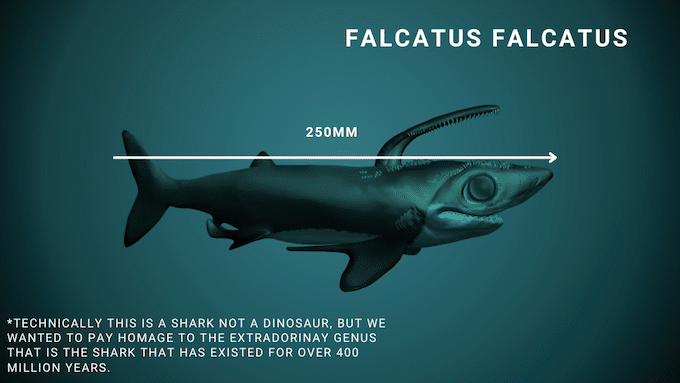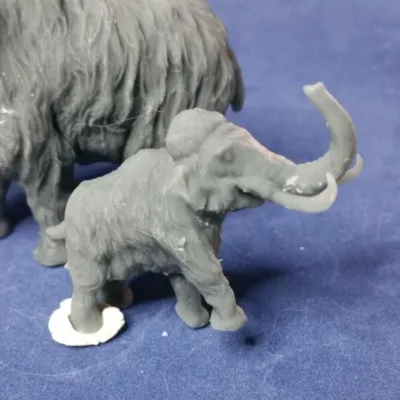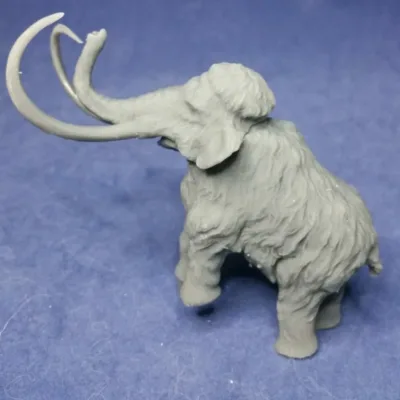Falcatus falcatus is a prehistoric marine arthropod that lived during the Late Devonian period, approximately 360 million years ago. It belongs to a group of arthropods known as eurypterids, or sea scorpions. Here are some interesting facts about Falcatus falcatus:
Size: Falcatus falcatus was a relatively small eurypterid, with an average length of about 10-15 centimeters (4-6 inches). However, some specimens could grow slightly larger.
Body Structure: Like other eurypterids, Falcatus had a long, segmented body with a distinctive, flattened, and blade-like cephalon (head) and a pointed telson (tail spine).
Habitat: These ancient sea scorpions were primarily marine creatures and inhabited shallow, brackish waters, making them one of the few eurypterids adapted to such environments.
Predatory Lifestyle: Falcatus falcatus was a carnivorous predator that likely fed on small fish, crustaceans, and other aquatic prey. Its flattened head and sharp telson would have been used for capturing and subduing its prey.
Vision: It is believed that Falcatus had well-developed compound eyes that provided it with good vision, allowing it to locate and pursue prey in the water.
Evolutionary Significance: Eurypterids, including Falcatus, are considered some of the earliest arthropods to adapt to aquatic life, making them important in the study of the evolution of arthropods, which include insects, spiders, and crustaceans.
Fossil Record: Fossils of Falcatus falcatus have been found in several locations, particularly in North America, including regions such as Ohio and Pennsylvania.
Extinction: Falcatus and many other eurypterids went extinct at the end of the Devonian period, likely due to various environmental changes, including fluctuations in sea levels and habitat alterations.
Scientific Interest: Falcatus falcatus is of interest to paleontologists because of its unique body shape, which distinguishes it from other eurypterids, and because it offers insights into the diversity of ancient marine ecosystems.
Museum Specimens: Fossilized remains of Falcatus can be found in various natural history museums around the world, where they contribute to our understanding of ancient aquatic life and the history of arthropods.
This is a high quality miniature 3D printed by Speira Miniatures in Sweden.
You can paint it as any normal miniature, no need to wash it beforehand. It is delivered unpainted.
Usable for dioarama, wargaming or tabletop role-playing games, such as Dungeon and Dragons, Warhammer, Pathfinder and so on. Also great as decor in your home if you order the large scales. We can always transform any model into a bust if you like, please contact us.
Due to the inherit nature of 3D printing the miniatures might contain imperfections and could require additional cleanup where the support have been; use sand paper or green putty for example. Print layers will sometimes be visable.
3D resin is brittle, even if we use a mixture than makes it more flexible. However it cannot be compared with the normal plastic that is used for example Warhammer, Marx or Conte miniatures. Handle the 3D prints with care, a fall can break them. Glue info here.







Reviews
There are no reviews yet.